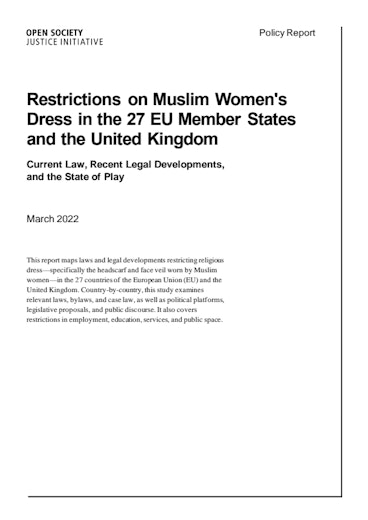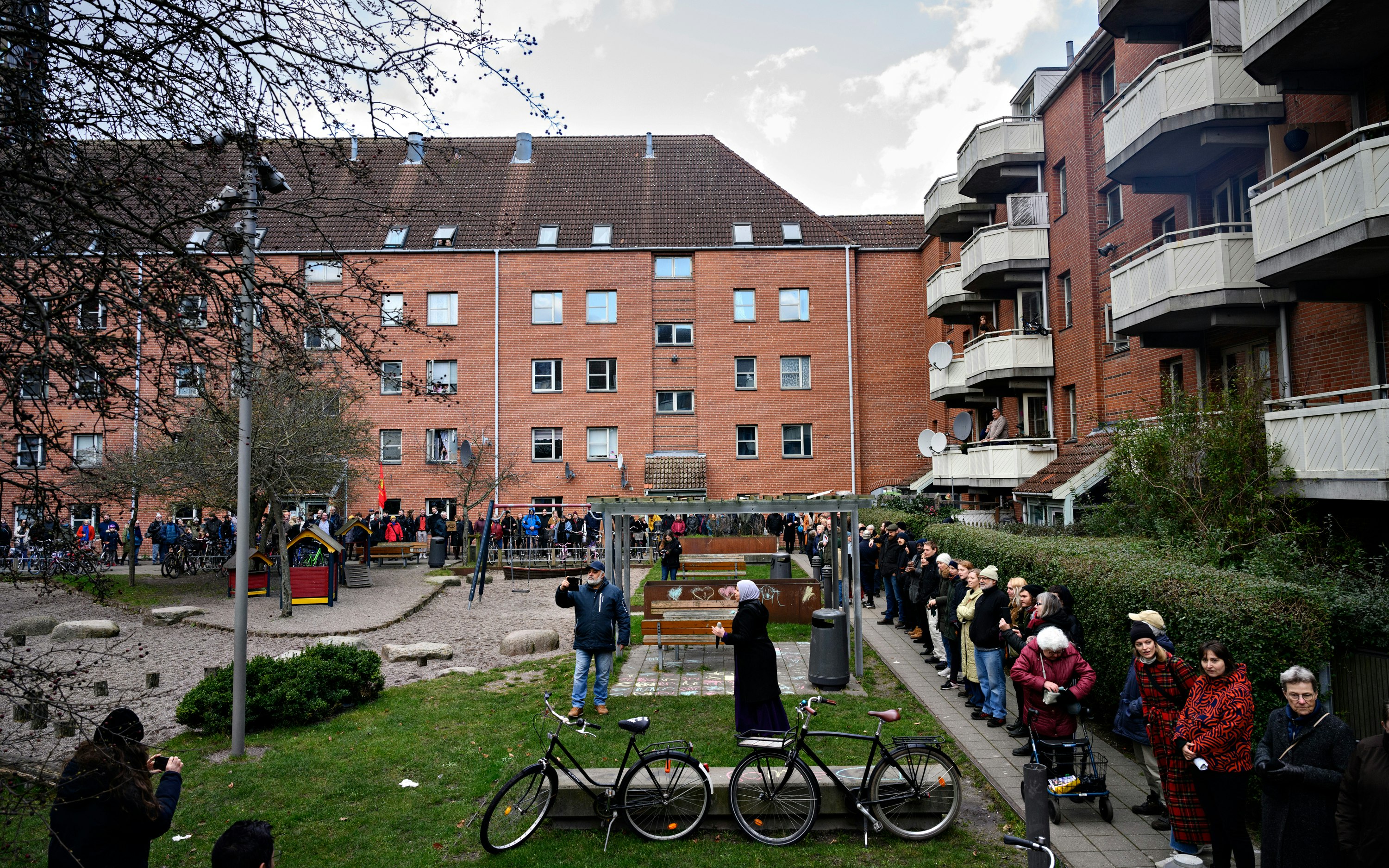Ouardiri v. Switzerland
Minaret Ban in Switzerland
In November 2009, Switzerland changed its constitution to prohibit the building of minarets. This amendment followed a contentious popular referendum in which supporters of the ban made extreme claims suggesting that the minaret is a symbol of Islamic expansionism. An absolute ban on an architectural feature of one religion is unjustified discrimination, breaches the right of Muslims in Europe to manifest their religious belief, and results in their alienation from society. (Keywords: discrimination)
Facts
On November 29, 2009, Switzerland changed Article 72 of the Swiss Federal Constitution which now reads: “The building of minarets is prohibited.” This followed a popular referendum held at the initiative of the “Egerkingen Committee,” a group of members of the Swiss People’s Party and the Federal Democratic Union. The groups claimed that: “minarets (i) are an expansionist political power symbol of Islam that questions fundamental constitutional rights such as the equality of the sexes, (ii) express a claim on the territory on which they are established, and (iii) are a cornerstone of a society in which Sharia law is being established.”
In the public debate that preceded the referendum, the government spoke out against adopting the minaret ban, explaining that this would amount to discrimination against Muslims, infringed on guaranteed international human rights, and contradicted the core values of the Swiss Federal Constitution. However, the Swiss Constitution requires that referendums take effect immediately, and the amendment came into force on the day it was approved by popular vote.
As a response, two claims were made to the Swiss Federal Supreme Court, arguing that the ban on minarets was unlawful and discriminatory. The Federal Court refused to consider the petitions, finding that under Swiss Law it was not possible to appeal against such a popular vote.
On December 15, 2009, Hafid Ouardiri, a former spokesman at the Geneva Mosque, lodged a complaint with the European Court of Human Rights challenging the constitutional amendment. He claimed that the minaret ban amounted to discrimination on grounds of religion and violated the European Convention of Human Rights. He also contended that he lacked an effective remedy before Swiss national courts to challenge the ban.
Research into Muslim integration across Europe shows that the claims advanced by proponents of the ban are untrue, and that legislation of this sort is deeply damaging. The Open Society Foundations At Home In Europe Project has undertaken research into the situation of Muslims in 11 European cities. Findings show that the overwhelming majority of Muslims—save for a narrow extremist exception present in every religion—integrate well, want to belong in European societies, and are willing to accept European norms and values. Conversely, discrimination on account of negative perceptions of Muslims prevents integration and good relations with established communities.
Open Society Justice Initiative Involvement
The Open Society Justice Initiative intervened as a third party in the case, reviewing the role of the minaret for Muslims in Europe, demonstrating that no other country in Europe has such an absolute ban, and that it is discriminatory and divisive.
Arguments
The Justice Initiative made the following arguments to the Court.
Role of the minaret. Construction of minarets is an intrinsic part of the right to manifest religious belief for Muslims in Europe, protected by Article 9 of the European Convention on Human Rights. The arguments against building minarets are not based on any genuine justification but upon irrational anti-Islamic animus, in violation of Article 14 (non-discrimination).
Minarets in Europe. Minarets are a feature of the landscape in many countries across Europe, where proper planning regulations are applied to all applications to build a religious building. Only in Switzerland is there such an absolute ban on an architectural element of a particular religion.
International standards. Many authoritative international bodies have concluded that the ban on the construction of a symbol of one particular religion is contrary to international standards.
Justice Initiative submits written comments to the European Court.
The European Court gives notice of the application to the Swiss Government and requests its comments.
Ouardiri files application with the European Court of Human Rights.
Constitutional Ban to build Minarets in Switzerland is adopted by referendum.
Related Cases
Related Work
Restrictions on Muslim Women's Dress in the 27 EU Member States and the United Kingdom
This policy brief and accompanying fact sheet map EU and UK laws and pending legislation restricting religious dress—specifically the headscarf and face veil worn by Muslim women.

Evidence Suggests Evictions in a Danish Neighborhood were Racially Biased. Now the Case is Before the High Court.
This case may set an important precedent for standards for discrimination in Denmark.

Why We Are Going to Court to Fight Racist French Police Tactics
Two French activists are demanding systematic action to address deep-rooted patterns of ethnic profiling in police stops.
